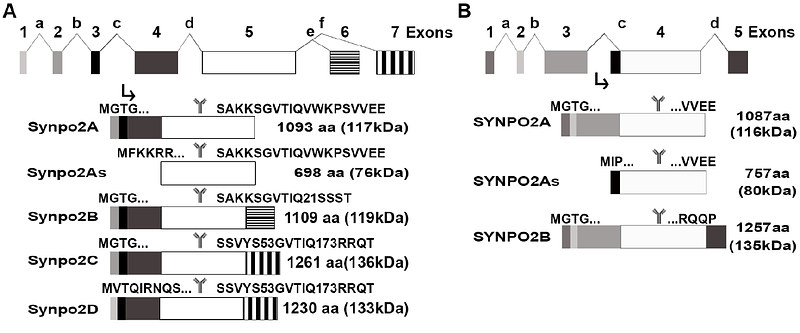The Short Isoform of the Mouse Actin Adaptor Protein Synaptopodin-2 Activates Actin-Responsive Transcription Factors and Enhances Myoblast Fusion

The Short Isoform of the Mouse Actin Adaptor Protein Synaptopodin-2 Activates Actin-Responsive Transcription Factors and Enhances Myoblast Fusion
Margam, N.; Kai, F.; Chichkov, V.; Crist, C.; Duncan, R.
AbstractExpression of synaptopodin-2 (SYNPO2), an actin cytoskeleton adaptor protein, is up-regulated following myoblast differentiation into myocytes and subsequently myotubes but no functional role in muscle development has been attributed to SYNPO2. We now show that of the three known mouse SYNPO2 isoforms, only the shortest isoform, SYNPO2As, is upregulated following differentiation of C2C12 myoblasts and primary mouse muscle satellite cells. Consistent with the differentiation-dependent expression pattern of these different isoforms, ectopic expression of SYNPO2As significantly increased myotube formation while the two large SYNPO2 isoforms (SYNPO2A or SYNPO2B) inhibited myocyte fusion into multinucleated myotubes. Irrespective of the fusion phenotype, all three isoforms enhanced migration of differentiating myoblasts. Knockdown studies using shRNA confirmed a pro-myogenic role for the short SYNPO2As isoform. Interestingly, SYNPO2As-transduced cells increased the transcript levels of late myogenic differentiation markers in the STARS (striated muscle activator of Rho signaling) and SRF (serum response factor) pathways that correlated with the enhanced fusion phenotype. These results identify the actin adaptor protein SYNPO2As as a new pro-myogenic factor that upregulates late myogenic differentiation markers and myotube formation.